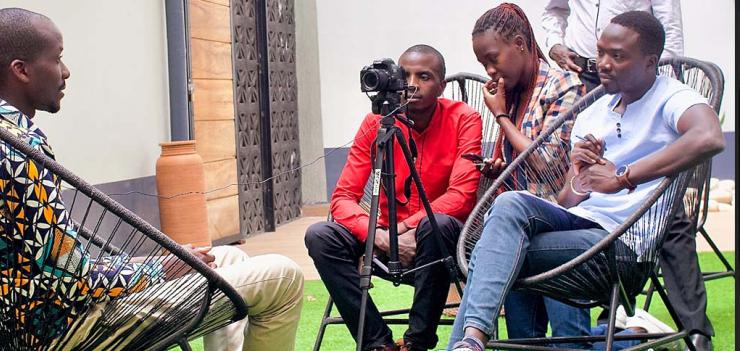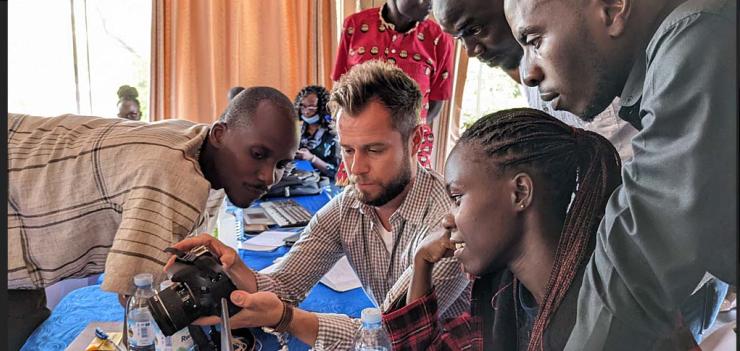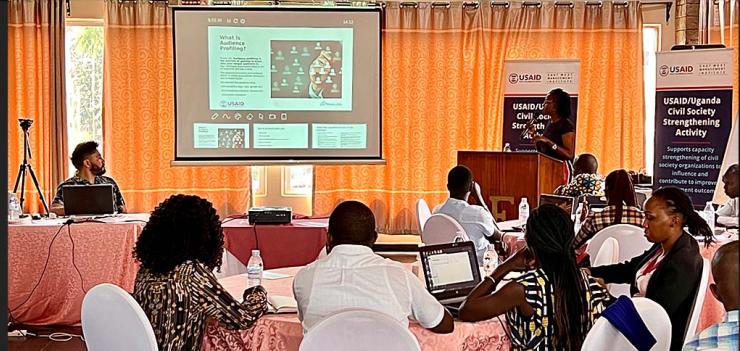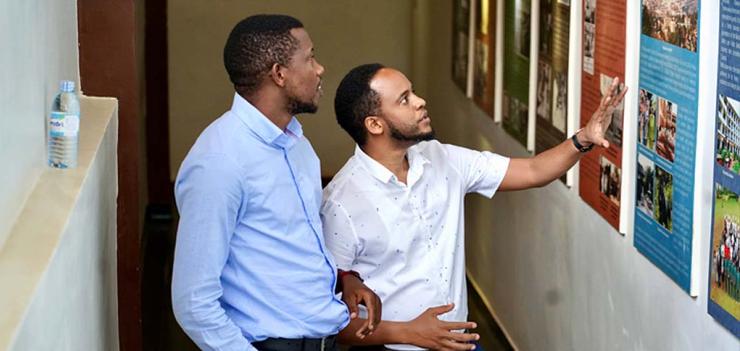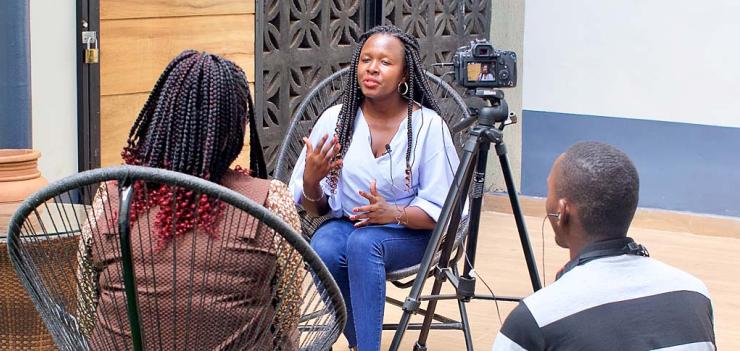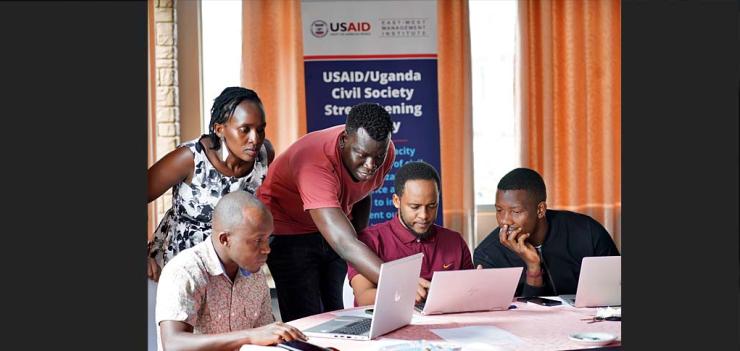“It’s not just a video of stories. It’s actually creating impact, and drawing the attention of donors”, says Peniel Rwendeire, the Executive Director of Network for Active Citizens (NAC), about the effect of the USAID/CSSA communications training on his organization.
NAC is one of 12 Civil Society Organizations (CSOs) that benefitted from a five-day Communications Technical Training conducted by USAID/CSSA through its implementing partner Rana Labs, from June 13 to 17, 2022, in Kampala. At the training, NAC was represented by Patricia Nakitto, who helps manage the organization's communications strategy. Warm, reserved, and bearing an unmistakable eagerness to learn and a growing passion for digital media, Patricia perfectly represents USAID/CSSA’s proactive approach to promoting women in spaces and industries that have been predominantly male, such as media and communications in Uganda, where the few women in the field are encouraged to be ‘in front of’ rather than ‘behind’ the camera, where the work is more technical. But against those odds, barely a month after the training, Patricia has already single handedly shot, edited, and produced two fundraising videos for SCINE, one of NAC’s member organizations that is working towards facilitating the setting up urban gardens in slum school backyards.
“In the slum communities, food goes a long way in keeping children in school, as they usually leave to find something to eat”, Patricia says, “Setting up these gardens provide not just food, but nutritional food which is ordinarily not prioritized because it is a struggle for most of the slum dwellers to have just a meal everyday. So I feel really privileged to now have this skill that can actually mean a fortune to these children”.
Using what she learned from the workshop, Patricia guided SCINE on how to use Facebook more effectively to share the video, which soon attracted the attention of Seed Programs International (SPI), an American organization that promotes access to quality seeds. SPI has since been helping the organization to mobilize resources through crowdfunding.
“I was then requested to make another video for the DonorSee platform, where, using that video, they have so far raised 25% of the USD 225 they need for a garden that will feed over 100 primary school-going children in Makindye Division, Kampala”, Patricia says. Like many other participants since the training, Patricia has also been creating different communications products including graphics designs such as social media flyers, training presentations, banners, and many others through Canva.
The workshop equipped the (22) participants with a vast array of communications skills that included storyboarding, video shooting, and editing; impact story identification and better writing; graphic design; social media content creation, platform specific strategies, and campaigning; customizing content for different platforms, purposes and audiences; and some tips on how to use these skills for brand building, visibility, advocacy, project implementation, and resource mobilization.
“We have never had such a training before, and we are not going to be the same again”, says Winnifred Ikalai, a participant who represented NAFOPHANU at the workshop.
A delighted Daniel Ikwap, another participant, says; “We are already beginning to patch a few things here and there, and make a surprise to the institution”.
The workshop, which was first of a series, was organized by USAID/CSSA after an organizational capacity assessment of local CSOs showed significant gaps in communications management. That assessment was then followed by a more detailed communications capacity assessment to inform an approach to strengthening the communications capacity of these CSOs.
“We can never, ever, take this opportunity from USAID/CSSA for granted. We are more than grateful for this offer to learn life-changing skills, and cascade the positive impacts to our networks”, says Peniel.

